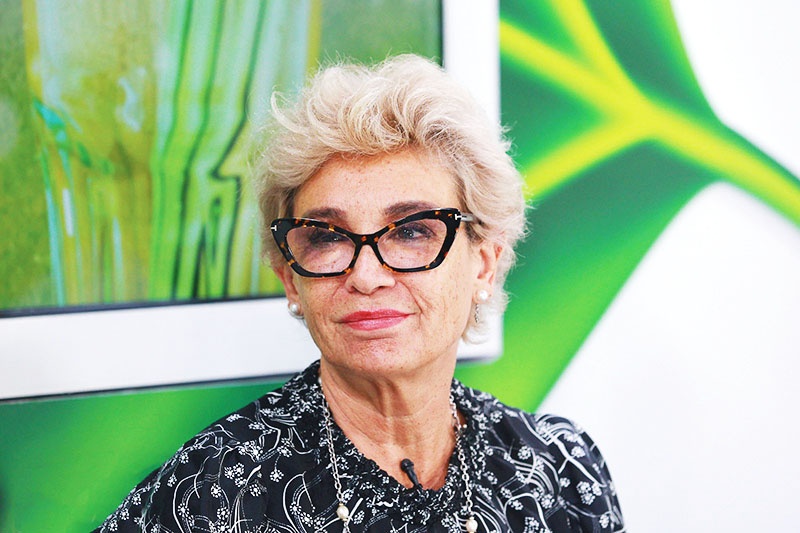Starbucks CSR initiatives gather pace
 |
| Patricia Marques, general manager of Starbucks Vietnam |
How tough is the coffee competition in Vietnam this year and how do you expect things to pan out moving into next year for your company?
Competition is up there. We have plenty of competitors and there are an enormous number of players in the market, although not necessarily competing in the same arena. Although we may all be coffee brands, some brands are more skewed towards teas or fruit drinks.
So in the coffee arena, we find that there is plenty of competition and in the next few years, we will probably continue to see even more than now, considering that many international players are not yet in Vietnam.
The quality of Vietnamese coffee beans can be unstable from year to year, so how do you support farmers in places like Dalat to ensure quality is up to standard?
In my role, I have no participation in the sourcing or the buying of Starbucks Coffee for the world. However, as a company, we try to be as close as possible to arabica growers in the Dalat area. We have been visiting them year after year, and by visiting them we attract their attention towards quality as well as bringing the Starbucks expertise to the market. So they can work together for better quality.
That being said, coffee is an agricultural product and the prospects move up and down depending on so many variables. But Dalat is growing in a positive fashion, arabica production is getting better, and hopefully, we will have many more crops to offer.
You have been based in Vietnam for many years. What would you say is the biggest social problem today that can use stronger cooperation from your business to improve?
We feel very close to Vietnam – I have personally been in the country for 12 years and Starbucks has been in business here for nine years. We started our corporate social responsibility (CSR) activities from day one, and that shortens the distance between communities and our stores.
We cater mostly younger Vietnamese people. We try to impart as much support as possible through different activities. For example, just before the pandemic emerged, through a very well-known foundation in Asia, we set up an interesting programme in Hanoi where 100 young and underserved Vietnamese were able to experience training and we got them ready for work.
CSR is an integral part of sustainable development goals for many businesses. What related activities have Starbucks Vietnam been involved in, and are there any new initiatives on the horizon?
In more recent times yes, we have many initiatives and more to come. Unfortunately, the restrictions of the past couple of years have pushed back many of our ideas and initiatives, but now we are ready to re-energise those.
At this very moment, we are working with an international foundation in supporting fresh and clean water in many underserved villages in this country, and we will continue to work on this. In terms of providing fresh and clean water, we aim to install at least four water tanks per year in rural areas, serving mostly children in Vietnam.
We are also planning a community store, which is a concept very close to the heart of our Vietnamese partners, so that will be unveiled in the very near future.
How much more difficult has it been to carry out such responsibilities in the industry over the past couple of years?
Obviously, the lack of mobility made things tremendously difficult, if not impossible. The water tank initiative is a prime example, in terms of trying to get access to those remote villages and attempting to get the correct approvals to carry out the initiative.
Everyone was concerned, and rightfully so, about ensuring social distancing and therefore, there was often no possibility of arranging transport, or putting groups of people together to work on certain goals. Projects required several parties, with some of them often stranded in lockdowns or it was otherwise impossible for them to reach us or enter various locations.
In the last two years, we were very happy to be able to get some of these initiatives through – we installed three water tanks in that time – but it was very difficult indeed.
What the stars mean:
★ Poor ★ ★ Promising ★★★ Good ★★★★ Very good ★★★★★ Exceptional
Related Contents
Latest News
More News
- Trung Nam-Sideros River consortium wins bid for LNG venture (January 30, 2026 | 11:16)
- Vietnam moves towards market-based fuel management with E10 rollout (January 30, 2026 | 11:10)
- Envision Energy, REE Group partner on 128MW wind projects (January 30, 2026 | 10:58)
- Vingroup consults on carbon credits for electric vehicle charging network (January 28, 2026 | 11:04)
- Bac Ai Pumped Storage Hydropower Plant to enter peak construction phase (January 27, 2026 | 08:00)
- ASEAN could scale up sustainable aviation fuel by 2050 (January 24, 2026 | 10:19)
- 64,000 hectares of sea allocated for offshore wind surveys (January 22, 2026 | 20:23)
- EVN secures financing for Quang Trach II LNG power plant (January 17, 2026 | 15:55)
- PC1 teams up with DENZAI on regional wind projects (January 16, 2026 | 21:18)
- Innovation and ESG practices drive green transition in the digital era (January 16, 2026 | 16:51)

 Tag:
Tag:



















 Mobile Version
Mobile Version